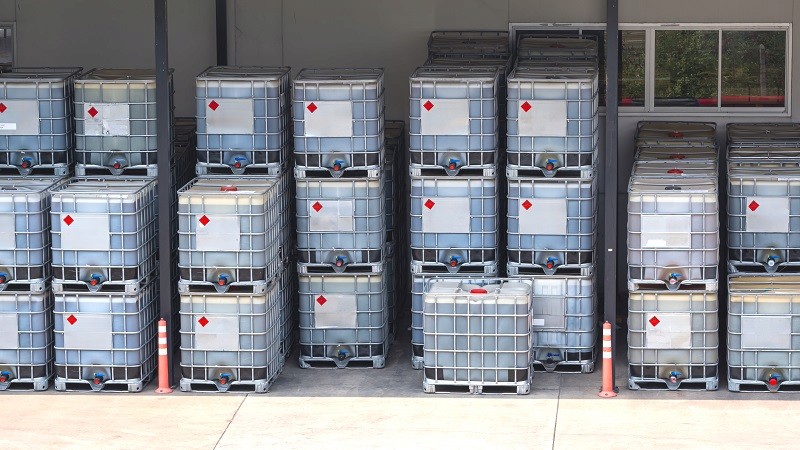


Industrial Storage & Bulk Transport
Industrial Storage & Bulk Transport
JiOil manages secured storage hubs and bulk transport operations, ensuring safe handling, regulated movement, and uninterrupted supply of UCO to processing facilities.
JiOil manages secured storage hubs and bulk transport operations, ensuring safe handling, regulated movement, and uninterrupted supply of UCO to processing facilities.



Ensuring Safe and Efficient Flow with Industrial Storage and Bulk Transport
At JiOil, reliable storage and secure transport form the backbone of our circular energy operations.
Our Industrial Storage and Bulk Transport division manages the controlled movement of used cooking oil across cities and regions, ensuring that every liter collected reaches our processing facilities safely and efficiently.
With strict handling protocols, advanced monitoring, and high capacity logistics, we guarantee a clean, compliant and uninterrupted supply chain from source to refinery.
Key Components of Industrial Storage and Bulk Transport
1. Secured Regional Storage Hubs
JiOil operates strategically placed storage facilities designed to consolidate UCO before refining:
High Capacity Tanks
Engineered for stability and safety, our tanks prevent contamination, overflows and leakage during storage.
Regulated Access Points
Sites include controlled entry systems to ensure that only authorized personnel handle the material.
Environmental Protection Standards
Facilities follow strict guidelines to prevent soil and water contamination while supporting regional waste management goals.
2. Bulk Loading and Transfer Operations
Efficient movement from storage to refinery is critical to overall production:
Automated Loading Systems
Our transfer equipment minimizes handling errors and accelerates loading operations for tankers.
Quality Verification Before Transfer
Each batch is checked for purity levels and contaminants to maintain the highest refining standards.
Standardized Operating Protocols
All operations follow strict safety procedures to ensure a reliable and compliant transfer process.
3. High Capacity Transport Fleet
JiOil ensures smooth and safe bulk movement through certified logistics partners:
Tanker Trucks and Specialized Containers
Vehicles are designed to transport liquid waste safely across long distances.
Temperature and Integrity Controls
Monitoring systems help maintain oil stability during transit.
Route Optimization
Digital tools plan the most efficient transport paths to reduce fuel use, costs and delays.
4. Real Time Tracking and Compliance
Transparency is essential in every transport operation:
Live GPS Monitoring
All tanker movements are tracked for full visibility and operational control.
Digital Documentation Packs
Transport records, quantity confirmations and compliance reports are automatically generated for audits.
Regulatory Alignment
We meet national and regional requirements for transporting used cooking oil and liquid waste materials.
Why Industrial Storage and Bulk Transport Matter
Operational Continuity
Large scale collection depends on efficient storage and stable transport systems.
Safety and Compliance
Our facilities and fleets follow strict environmental and handling standards that protect partners and communities.
Cost Efficient Logistics
Optimized routes, coordinated pickups and centralized storage reduce overall operational costs.
Quality Assurance
Controlled storage and transport maintain the purity of UCO, supporting high quality biodiesel output.
The Backbone of JiOil’s Circular Energy Supply Chain
Industrial Storage and Bulk Transport ensure that every liter of recovered UCO reaches the refinery under the safest and most efficient conditions.
With advanced infrastructure, controlled operations and real time monitoring, JiOil delivers a clean and reliable supply chain that powers the future of renewable fuel.
Ensuring Safe and Efficient Flow with Industrial Storage and Bulk Transport
At JiOil, reliable storage and secure transport form the backbone of our circular energy operations.
Our Industrial Storage and Bulk Transport division manages the controlled movement of used cooking oil across cities and regions, ensuring that every liter collected reaches our processing facilities safely and efficiently.
With strict handling protocols, advanced monitoring, and high capacity logistics, we guarantee a clean, compliant and uninterrupted supply chain from source to refinery.
Key Components of Industrial Storage and Bulk Transport
1. Secured Regional Storage Hubs
JiOil operates strategically placed storage facilities designed to consolidate UCO before refining:
High Capacity Tanks
Engineered for stability and safety, our tanks prevent contamination, overflows and leakage during storage.
Regulated Access Points
Sites include controlled entry systems to ensure that only authorized personnel handle the material.
Environmental Protection Standards
Facilities follow strict guidelines to prevent soil and water contamination while supporting regional waste management goals.
2. Bulk Loading and Transfer Operations
Efficient movement from storage to refinery is critical to overall production:
Automated Loading Systems
Our transfer equipment minimizes handling errors and accelerates loading operations for tankers.
Quality Verification Before Transfer
Each batch is checked for purity levels and contaminants to maintain the highest refining standards.
Standardized Operating Protocols
All operations follow strict safety procedures to ensure a reliable and compliant transfer process.
3. High Capacity Transport Fleet
JiOil ensures smooth and safe bulk movement through certified logistics partners:
Tanker Trucks and Specialized Containers
Vehicles are designed to transport liquid waste safely across long distances.
Temperature and Integrity Controls
Monitoring systems help maintain oil stability during transit.
Route Optimization
Digital tools plan the most efficient transport paths to reduce fuel use, costs and delays.
4. Real Time Tracking and Compliance
Transparency is essential in every transport operation:
Live GPS Monitoring
All tanker movements are tracked for full visibility and operational control.
Digital Documentation Packs
Transport records, quantity confirmations and compliance reports are automatically generated for audits.
Regulatory Alignment
We meet national and regional requirements for transporting used cooking oil and liquid waste materials.
Why Industrial Storage and Bulk Transport Matter
Operational Continuity
Large scale collection depends on efficient storage and stable transport systems.
Safety and Compliance
Our facilities and fleets follow strict environmental and handling standards that protect partners and communities.
Cost Efficient Logistics
Optimized routes, coordinated pickups and centralized storage reduce overall operational costs.
Quality Assurance
Controlled storage and transport maintain the purity of UCO, supporting high quality biodiesel output.
The Backbone of JiOil’s Circular Energy Supply Chain
Industrial Storage and Bulk Transport ensure that every liter of recovered UCO reaches the refinery under the safest and most efficient conditions.
With advanced infrastructure, controlled operations and real time monitoring, JiOil delivers a clean and reliable supply chain that powers the future of renewable fuel.
